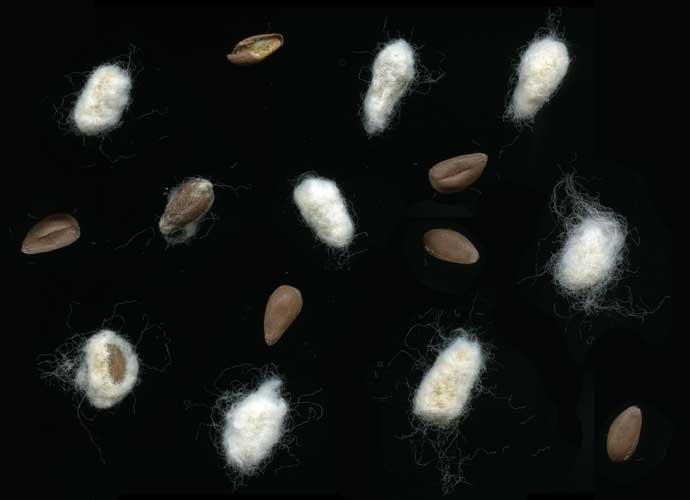Last week, Boston-based Indigo Agriculture announced a record-breaking $100 million funding round with the Alaska Permanent Fund and Flagship Ventures. The round was led by the $54 billion state-owned Alaska Permanent Fund, with participation from previous investors, including early stage incubation-style VC Flagship Ventures and members of the company’s management and board. The funding comes just four months after Boston-based Indigo Agriculture closed a $56 million Series B with Flagship. The company has developed a microbiome-derived seed coating product for cotton that boosts water efficiency in the crop.
AgFunderNews caught up with David Perry, CEO of Indigo Agriculture, to find out more about its new product, how it plans to use the funding, and what’s next for the company.
How would you describe Indigo Cotton?

Indigo’s product is a microbial seed coating. Almost every modern agricultural seed is coated before it’s planted — typically with a pesticide, fungicide, etc. What we’re doing is adding another ingredient to the process. When the seed germinates, it takes the microbes up inside the plant, and they multiply within. The presence and diversity of beneficial microbes yields more abundant, healthier crops that are more resistant to stresses like insufficient water, low nitrogen, high temperature and salty soils while bolstering crops’ resistance to disease and harmful insects.
Yesterday, we announced the launch of Indigo Cotton, which is designed for water use efficiency, and has been planted on more than 50,000 acres in Texas and four surrounding states. This is especially pertinent as the global demand for water has never been greater. The increase in projected global population to 9.7 billion by 2050 will place additional pressure on water supplies. As agricultural production accounts for 70 percent of current global water consumption, more water-efficient methods of food production are urgently needed.
How does Indigo Agriculture’s discovery process differ from other microbiome research firms?
Much of the research on microbes to date has focused on those found in the soil. Our approach is based on looking at the microbes inside the plant (endophytes) and identifying the ones that produce healthier crops. To date, Indigo has sequenced the genomes of over 40,000 microbes and we’ve tested on more than a dozen crops across three continents in four growing seasons.
How will you deploy this latest round of funding?
We’re looking forward to expanding research and development, preparing for the launch of our second product later this year — designed for water use efficiency wheat — and to expanding the team, which we are on track to double by the end of the year.
How did you connect with Alaska Permanent Fund? Have you kept your investor base narrow intentionally?
We view the ideal investor as having the following four characteristics:
(1) being aligned with our mission of helping farmers sustainably feed the planet
(2) having access to significant capital
(3) focusing on the long-term horizon
(4) being supportive of future investments in Indigo
The Alaska Permanent Fund, as well as our other investors, has these characteristics. As part of its long-term commitment to Indigo, the Alaska Permanent Fund also intends to invest a similar amount in Indigo’s future financings.
How did you deploy the $56 million you raised just a few months ago?
The fact that we’ve raised additional funds doesn’t mean that we’ve spent all the previous funds. We believe we’re working on the next big innovation in agriculture. Previous agricultural innovations like ag chemicals, crop breeding, and GMOs each created tens of billions of dollars of market cap. If we’re right, biologicals will be the next big innovation, and we are committed to being a leader in this area.
Have news or tips? Email [email protected]





